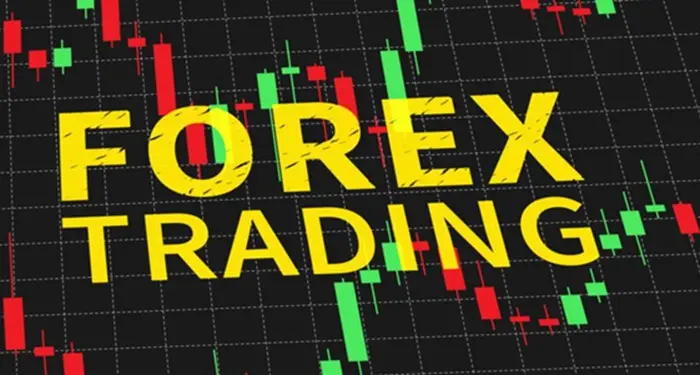The world of Forex trading is dynamic and understanding its basic concepts is crucial to success. One of the most basic yet often overlooked elements of Forex trading is the spread. Whether you are a new or experienced trader, understanding how the spread works and the role it plays in Forex trading can significantly improve your profitability.
What is the spread in Forex trading?
The spread in Forex trading, in simple terms, is the difference between the bid and ask prices of a currency pair. The bid price is the price at which a trader sells the base currency, while the ask price is the price at which a trader buys the base currency. This difference is called the spread and it is one of the main ways brokers make money.
There are two main types of spreads: fixed spreads and floating spreads. Each spread has different advantages and disadvantages, depending on the market conditions and the trader’s goals.
Types of Spreads in Forex Trading
Fixed Spread
The fixed spread remains constant regardless of market conditions. This means that no matter how volatile or stable the market is, the spread between the bid and ask price will always stay the same. Fixed spreads are generally offered by brokers who want to provide a sense of consistency and predictability to their traders.
Advantages of Fixed Spread
Predictability: Fixed spreads are ideal for traders who want to know exactly how much they will pay in transaction costs.
No surprise costs: Because fixed spreads are constant, traders can plan their trades more effectively.
Disadvantages of Fixed Spread
Higher cost during volatile times: Fixed spreads can be less advantageous during periods of high volatility because brokers may increase the spread to account for market risks.
Limited flexibility: Traders may not be able to take advantage of tighter spreads during calmer market periods.
Variable Spread
The variable spread, also known as the floating spread, changes according to market conditions. In times of low market volatility, the spread may narrow, providing an opportunity for cheaper trades. However, during periods of high volatility, the spread can widen significantly, increasing transaction costs.
Advantages of Variable Spread
Lower cost during stable market conditions: During quiet market hours, variable spreads can be much narrower than fixed spreads, leading to cheaper trading costs.
Flexibility: Traders benefit from more dynamic pricing that adjusts with the market conditions.
Disadvantages of Variable Spread
Increased costs during volatility: During news releases or periods of high volatility, spreads can widen significantly, leading to higher costs.
Less predictability: Because variable spreads are dynamic, traders may find it challenging to plan their trades with certainty.
Factors Affecting Forex Spreads
The volatility of Forex spreads is affected by a variety of factors. Understanding these factors can help traders better navigate the market and make informed decisions when choosing a broker.
Liquidity
The more liquid the market, the tighter the spread. More liquid currency pairs, such as EUR/USD or GBP/USD, tend to have tighter spreads than less liquid pairs, such as NZD/JPY or EUR/TRY. This is because more liquid currency pairs have higher volumes, which makes it easier to match buy and sell orders and the bid-ask spreads are less wide.
Market Volatility
Volatility is one of the most important factors affecting Forex spreads. When the market is calm, brokers can offer lower spreads. However, during periods of greater market volatility, such as major economic announcements or geopolitical events, spreads may widen. This is because brokers want to protect themselves from the risk of price fluctuations and potential losses.
Economic Events and News Releases
Major economic announcements, such as interest rate decisions, employment reports, and inflation data, can all lead to increased market volatility. This often results in wider spreads as brokers adjust their prices based on the potential impact of these news on the currency markets.
Broker’s Policies and Pricing Model
Different brokers have different pricing methods. Some brokers may offer lower spreads but charge a commission as compensation, while others may offer higher spreads but do not charge a commission. It is important for traders to understand the pricing model of their chosen broker and how it affects their overall trading costs.
How Spreads Affect Forex Traders
Spreads play a vital role in determining trading costs. The larger the spread, the higher the trading costs that traders need to pay. This can significantly affect profitability, especially for those who trade a large number of times or with low price fluctuations.
Trading Costs
The spread represents the cost to a trader to enter and exit a trade. For example, if you want to buy a currency pair at the Ask price of 1.1350 and the Bid price is 1.1345, the spread is 5 pips. This means that the price must move at least 5 pips in the trader’s favor before the trader can start to make a profit.
Impact on Trading Strategies
Traders who use scalping strategies or engage in high-frequency trading are particularly sensitive to spreads. Larger spreads can eat into their profits, so choosing a broker that offers low spreads is crucial. On the other hand, traders using long-term strategies such as swing trading or position trading may be less affected by spreads as their goal is to profit from larger price movements.
How to Minimize the Impact of Spreads in Forex Trading
While spreads are an unavoidable part of forex trading, there are strategies that traders can employ to minimize their impact.
Choose the Right Broker
The choice of broker can have a significant impact on the spreads you encounter. A broker that offers competitive spreads on major currency pairs can help you reduce your trading costs. Be sure to compare the spreads offered by different brokers and consider both fixed and floating spreads.
Trade During Off-Peak Hours
Trading during periods of lower volatility, such as the Asian trading session, can help you avoid the larger spreads that occur during periods of higher volatility, such as during news releases or when the European and US trading sessions open.
Consider Trading More Liquid Pairs
Major currency pairs, such as EUR/USD, GBP/USD, and USD/JPY, tend to have smaller spreads due to their higher liquidity. If you want to minimize the impact of spreads, focus on trading these more liquid pairs.
Use a Long-Term Strategy
Traders who use a long-term strategy may be less affected by spreads. If you are looking to profit from large price movements over the long term, then a wider spread may have less of an impact than if you are trying to capture small price changes over the short term.
Conclusion
The spread is one of the key elements that every forex trader needs to understand. It is the cost of trading in the forex market and while it may seem small, it can add up over time, especially for traders who employ high-frequency trading strategies. By understanding how the spread works, what factors affect it, and how to minimize its impact, traders can make more informed decisions and improve their chances of success in the forex market.
Understanding the difference between fixed and floating spreads, knowing when spreads widen or narrow, and choosing a broker that offers competitive spreads can help you become a more efficient trader. While spreads are unavoidable, they don’t have to be a hindrance to your trading success if you use the right strategy to manage them.
Related topics:



































